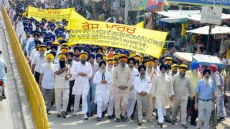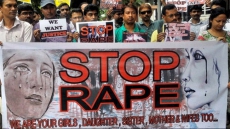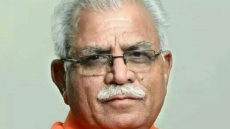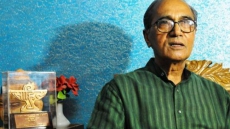It's been sold as God's Own Country. Over the years, its verdant landscape and attractive beaches have enticed millions of visitors from the rest of India and abroad. Its tourism industry projects celebration of life as its underlying ethos.
Now, Kerala is offering itself as the best place to die. The state boasts of being far ahead in palliative care in India. Its approach has been fine-tuned over the years by policymakers, health experts and civil society activists.
"Today palliative care has become a social movement in the state and the latest to join the bandwagon is the CPI-M, which has asked its cadres to form palliative cares in as many places as possible," eminent oncologist, V.P.Gangadharan told IANS.
Kerala's efforts received a feather in its cap when Singapore-based Lien Foundation praised the state's provision of palliative care for patients with serious illnesses, in its 40-country Quality of Death study recently.
"While India ranks at the bottom of the Index in overall score and performs badly on many indicators, Kerala, if measured on the same points, would buck the trend," said the 'Quality of Death: Ranking end-of-life care across the world' report.
"With only three percent of India's population, the state provides two-thirds of India's palliative care services," the report released earlier this week stated.
Gangadharan, who is considered to be the darling of cancer patients, said this was bound to happen as Kerala had a sound foundation in basic healthcare.
According to A.C.Kurian, retired Christian priest and honorary director of the Pain and Palliative Care Society under the Pushapagiri Hospital in Thiruvalla, the success of the care is because of the infrastructure and team work.
"The hospital provides the infrastructure, including a ward, four doctors and 10 nurses for free. And there are a large number of volunteers," he said.

They provide treatment to the weaker sections of society suffering from terminal ailments. Also, through extension activities, the family members of a patient who dies are also helped.
Kerala is also one of India's first states to relax narcotics regulations to permit use of morphine by palliative care providers.
M.R. Rajagopal, chairman of Pallium India, a charitable trust promoting palliative care, laments the lack of funding in India for end-of-life care services. However, Rajagopal was quoted as saying by the report that money was not the only answer to relieve suffering and improving quality of life for those in the last stages of their lives.
Kerala's unique system revolves around the Neighbourhood Network in Palliative Care (NNPC) project, co-founded by Suresh Kumar, with the aim of improving both accessibility and quality of end-of-life care.
Former State Finance Minister and senior CPI-M legislator Thomas Issac says the current status had been reached because of innovative thinking. "With decentralisation of powers in the late nineties, every local body was directed to allocate a portion of its funds for innovative health schemes. Today most such bodies have an allocation for palliative care, Issac told IANS.
According to the report Britain tops in overall score while Australia and New Zealand hold the second and third spots, respectively. India is ranked last in overall scores at 40. China ranks 37.





